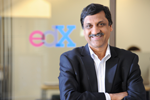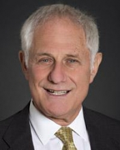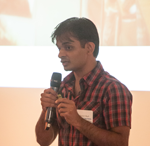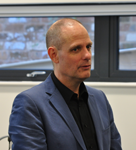Keynotes + Lightning Speakers
Keynotes
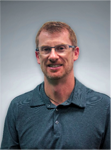
Matt Tearle
(Principle Training Content Developer, Training Services, MathWorks)

Jamie Merisotis
(CEO, Lumina Foundation)
The Future of Learning and Work: Making Sure That All Learning Counts
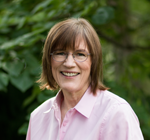
Barbara Oakley
(Professor, Oakland University)
Learning How to Learn: A Behind-the-Scenes Look at the World’s Most Popular MOOC
Lightning Speakers
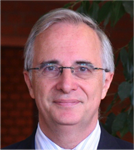
Carlos Delgado Kloos
(Vice President, UC3M)
It is Time to Move up to the Next Level in Digital Education
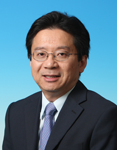
Ting-Chuen Pong
(Professor, Hong Kong University of Science and Technology)
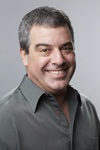
Armando Fox
(Professor, University of California, Berkeley)
The Role of the MOOC Ecosystem in Alternative Digital Credentials

Lou Pugliese
(Managing Director, ASU)

Adam Stepan
(Director, Picker Center Digital Education Group, Columbia University)
Audiovisual Case Study Collaborations – Using MOOC’s to Create Shared Educational Assets
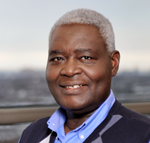
Hamadou Saliah-Hassane
(Professor, TÉLUQ University)
Challenges of implementing and operating mobile laboratories effectively for MOOCs
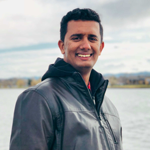
Ranjit R Nair
(Anna University, Chennai; IEEE Educational Activities Board)
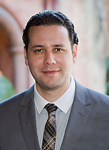
Rocael Hernández Rizzardini
(Director Galileo Educational System, Universidad Galileo)
The 4th Industrial Revolution, a new Economy, a new Education?

Ignacio Despujol
(Coordinator MOOCs, Universidad Politecnica de Valencia)
Are MOOCs going to disappear? MOOC challenges in the coming years

Janine Kiers
(Product Manager Online Learning, Delft University of Technology)

María Dolores Castrillo
(Senior Lecturer, UNED)
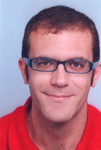
Pedro Jose Muñoz Merino
(Associate Professor at Universidad Carlos III de Madrid; Coordinator of the LALA project)
Anant Agarwal
CEO edX
The Future of Education is Modular
The evolving workplace and the impact of technology across all industries are creating new and challenging demands on our education system, but our current approach has been slow to adapt. How can we address this important need for change? The way forward is to embrace the innovations in digital learning and microcredentialing that offer promising evolution paths for the future of education. Learn about the work that needs to be done as we forge this new education system - this talk will discuss five aspirational goals for education including increasing access, creating a quantum improvement in education quality, modular and networked education, omnichannel delivery, and lifelong learning.
The Speaker
Anant Agarwal is the CEO of edX, an online learning destination founded by Harvard and MIT. Anant taught the first edX course on circuits and electronics from MIT, which drew 155,000 students from 162 countries. He has served as the director of CSAIL, MIT's Computer Science and Artificial Intelligence Laboratory, and is a professor of electrical engineering and computer science at MIT. He is a successful serial entrepreneur, having co-founded several companies including Tilera Corporation, which created the Tile multicore processor, and Virtual Machine Works.
Anant won the Maurice Wilkes prize for computer architecture, and MIT's Smullin and Jamieson prizes for teaching. He is also the 2016 recipient of the Harold W. McGraw, Jr. Prize for Higher Education, which recognized his work in advancing the MOOC movement. Additionally, he is a recipient of the Padma Shri award from the President of India. He holds a Guinness World Record for the largest microphone array, and is an author of the textbook "Foundations of Analog and Digital Electronic Circuits."
Scientific American selected his work on organic computing as one of 10 World- Changing Ideas in 2011, and he was named in Forbes' list of top 15 education innovators in 2012. Anant, a pioneer in computer architecture, is a member of the National Academy of Engineering, a fellow of the American Academy of Arts and Sciences, and a fellow of the ACM.
He hacks on WebSim, an online circuits laboratory, in his spare time. Anant holds a Ph.D. from Stanford and a bachelor's from IIT Madras. Anant's twitter handle is @agarwaledu.
Matt Tearle
Principle Training Content Developer, Training Services, MathWorks
Deep Learning and the Future of Online Education
Deep Learning has been exploding in popularity as organizations evaluate how to address needs for improved image recognition capabilities. Industrial applications in areas as diverse as automotive design and medicine are applying this machine learning technique to automate roles once performed only by humans. Modern society will be transformed by this technology in the form of self-driving cars and robust industrial automation. Online education must address this demand with solutions that cut through the hype and prepare learners to address real-world problems with the right level of understanding. learners to address real-world problems with the right level of understanding.
How will engineers in the field acquire new skills and keep up with a rapidly emerging discipline like deep learning? For many, taking weeks of traditional theoretical training is not only unnecessary but limits the ability to evaluate technology, create innovative solutions, and build skills. Carefully designed education, with partnership from industry, are necessary to address the needs of the workforce. A balance of good pedagogy, meaningful hands-on examples, and appropriate tools create the experience students need to thrive and succeed throughout their careers. Of specific concern to areas like deep learning, are providing learners with the large data, frameworks, and computational resources necessary to learn effectively.
The Speaker
Matt Tearle is a principal training content developer at MathWorks, specializing in online content for technical computing, data analytics, machine learning, and deep learning. He holds a Ph.D. in applied mathematics from the University of Colorado at Boulder. Prior to joining MathWorks, he taught engineering mathematics and computing.
For the last 10 years, Matt has been on a mission to teach everyone how to use MATLAB to solve their problems. In 2014, he created a free 2-hour online interactive introduction to MATLAB which has since had 230,000 users. He is also the creator of courses on machine learning and deep learning.
Simon Nelson
CEO, FutureLearn
Social learning on an international scale
The international education sector is currently going through significant change driven by market and political conditions. Student attitudes and expectations are also changing as digital technology advances and the HE world commercialises. As universities strive to modernise, attract global students, deliver value for money and remain internationally relevant, the role of Edtech, and the evolution of the MOOC has never been so important.
The education institutions that will thrive will be the ones who rethink the 'student' of today, begin to see learners as 'lifelong' learners, embrace new pedagogies, and interact with learners in a way they understand. FutureLearn’s pedagogy is based on the theory of social learning and we've seen how it can bridge the gap so that international access to course material can still be of the highest quality, at distance, within a diverse community of learners, achieving great and real results.
The presentation will cover:
- The key challenges currently facing higher education including achieving a credible digital strategy, driving student recruitment and connecting with international audiences.
- The changing demands of the learner in a digital era
- Who are FutureLearn and what do we do differently in digital education through our approach to social learning?
- How MOOCs are working in partnership with universities to meet their digital needs into the future with case studies on the most progressive approaches across the world.
- Delivering international education to achieve the best results for the student with case studies on diverse types of student and uses of MOOCs.
- Evaluating the direction of travel. From the delivery of online degrees to philanthropic initiatives, how will online platforms continue to transform education?
The Speaker
Simon Nelson is Chief Executive of FutureLearn, the leading social learning platform and first UK-based provider of massive open online courses (MOOCs), which has now evolved to offer fully online degrees.
The Open University-backed FutureLearn site went live in October 2013; since then, it has attracted almost 8 million registered learners studying 19 million courses between them.
To date, FutureLearn has partnered with a quarter of the world’s top 200 universities, including over 90 UK and international universities, and 36 specialist education providers and centres of excellence, including the British Council, Houses of Parliament, Raspberry Pi and Cancer Research UK, to deliver free and paid for online courses to its global community of learners.
In May 2015, FutureLearn delivered the biggest single run of a MOOC ever, with a record of more than 440,000 people signing up for the IELTs course from the British Council. In May 2016, FutureLearn launched its first credit-bearing MOOCs, a milestone followed by its partnership with Deakin University in December 2016 and Coventry University in June 2017, offering a suite of fully online degrees.
Also in 2016, FutureLearn announced its first partnerships with key educational institutions in America.
The company was named “Start-up of the Year” at the 2014 British Interactive Media Awards and won ‘Best Education or Learning Experience” and overall ‘Best User Experience’ categories at the 2015 UXUK Awards. The company also won ‘Free Digital Content/Open Educational Resources’ category at the BETT 2017 Awards and in 2018, FutureLearn won the EdTechXGlobal All Stars Growth Award.
In October 2016, Simon Nelson was invited to deliver the annual President’s Lecture for the Royal Society of Arts in London, sharing his thoughts on the future of education and the opportunities that digital platforms present.
Simon Nelson has a background in digital disruption as a pioneer in taking media brands and content online. He spent 14 years at the BBC, where he was instrumental in putting radio online, and overseeing its podcasting service and the innovative Radio Player. He then moved to head up all digital content activities for its television divisions where he led the development of the BBC iPlayer and other ground-breaking online products and services.
Simon and his teams have won multiple awards for digital innovation and product development, including several Emmys, Webby and Bafta awards, the Prix Italia, Prix Europa and Rose D’or.
Zvi Galil
Dean, Georgia Tech
Georgia Tech's Online MOOC-based Master Program
In May 2013, Georgia Tech together with its partners, Udacity and AT&T, announced a new online master’s degree in computer science delivered through the platform popularized by massively open online courses (MOOCs). This new online MS CS— or OMSCS for short — costs less than $7,000 total, compared to a price tag of $40,000 for an MS CS at comparable public universities and upwards of $70,000 at private universities.
The first-of-its-kind program was launched in January 2014 and has sparked a worldwide conversation about higher education in the 21st century. President Barack Obama has praised OMS CS by name twice, and over 1,000 news stories mentioned the program. It’s been described as a potential "game changer" and "the first real step in the transformation of higher education in the US.” Harvard University researchers concluded that OMSCS is “the first rigorous evidence showing an online degree program can increase educational attainment” and predicted that OMSCS will single handedly raise the number of annual MS CS graduates in the United States by at least 7 percent.
To ensure program quality and rigor, Georgia Tech started in 2014 with small enrollment of 380; in January 2017 enrollment exceeded 6,360; about 7500 are expected to enroll in the Fall. So far 895 students have graduated from OMSCS; over 300 will graduated in May. The program has also paved the way for a number of similar, MOOC-based MS programs.
The talk will describe the OMSCS program, how it came about, its first four years, and what Georgia Tech has learned from the OMSCS experience. We will also discuss its potential effect on higher education.
The Speaker
Dr. Zvi Galil, Dean of the College of Computing, Georgia Institute of Technology, was born in Tel-Aviv, Israel. He earned BS and MS degrees in Applied Mathematics from Tel Aviv University, both summa cum laude. He then obtained a PhD in Computer Science from Cornell University. After a post-doctorate in IBM's Thomas J. Watson research center, he returned to Israel and joined the faculty of Tel-Aviv University. He served as the chair of the Computer Science department in 1979-1982.
In 1982 he joined the faculty of Columbia University. He served as the chair of the Computer Science Department in 1989-1994 and as dean of The Fu Foundation School of Engineering & Applied Science in 1995-2007. Galil was appointed Julian Clarence Levi Professor of Mathematical Methods and Computer Science in 1987, and Morris and Alma A. Schapiro Dean of Engineering in 1995. In 2007 Galil returned to Tel Aviv University and served as president. In 2009 he resigned as president and returned to the faculty as a professor of Computer Science. In July 2010 he became The John P. Imlay, Jr. Dean of Computing at Georgia Tech.
Dr. Galil's research areas have been the design and analysis of algorithms, complexity, cryptography and experimental design. In 1983-1987 he served as chairman of ACM SIGACT, the Special Interest Group of Algorithms and Computation Theory. He has written over 200 scientific papers, edited 5 books, and has given more than 300 lectures in 20 countries. Galil has served as editor in chief of two journals and as the chief computer science adviser in the United States to the Oxford University Press. He is a fellow of the ACM and the American Academy of Arts and Sciences and a member of the National Academy of Engineering. In 2008 Columbia University established the Zvi Galil Award for Improvement in Engineering Student Life. In 2009 the Columbia Society of Graduates awarded him the Great Teacher Award. In 2012 the University of Waterloo awarded him an honorary doctorate in mathematics. Zvi Galil is married to Dr. Bella S. Galil, a marine biologist. They have one son, Yair, a corporate lawyer in New York.
Jamie Merisotis
CEO, Lumina Foundation)
The Future of Learning and Work: Making Sure That All Learning Counts
Millions of people around the world need the knowledge and skills that can only be obtained through postsecondary learning. They also need postsecondary credentials that make that learning transparent to employers, to education providers, and to themselves. At Lumina Foundation, our work has shown that well-designed, high-quality competency-based programs—along with other innovative delivery models such as open-source online programs—can help learners obtain high-quality postsecondary credentials. How are these open-source online programs connected to the future of work? How can the global learning community support and create conditions for change that benefit learning, working, equity and talent for all learners? This keynote will address these and other topics related to the future of learning and work.
The Speaker
Jamie Merisotis is a globally recognized leader in philanthropy, education, and public policy. Since 2008, he has served as president and CEO of Lumina Foundation, an independent, private foundation that is committed to making opportunities for learning beyond high school available to all. He previously served as co-founder and president of the nonpartisan, Washington, DC-based Institute for Higher Education Policy, and as executive director of a bipartisan national commission on college affordability appointed by the U.S. President and Congressional leaders. Merisotis is the author of the widely-acclaimed book America Needs Talent, named a Top 10 Business Book of 2016 by Booklist.
He is frequently sought after as a media commentator and contributor. His writing has appeared in The Washington Post, New York Times, Wall Street Journal, National Journal, Stanford Social Innovation Review, Washington Monthly, Politico, Roll Call and other publications.
His work includes extensive global experience as an adviser and consultant in southern Africa, the former Soviet Union, Europe and other parts of the world. A respected analyst and innovator, Merisotis is a member of the Council on Foreign Relations in New York.
He is the recipient of numerous awards and holds honorary degrees from several colleges and universities. Merisotis also commits his time and energies as trustee for a diverse array of organizations around the world. He chairs the board of The Children’s Museum of Indianapolis, the world’s largest museum for children, and holds leadership positions on the boards of the Council on Foundations in Washington, DC, and the UK-based European Access Network. He lives with his wife Colleen O’Brien and their children Benjamin and Elizabeth in Indianapolis.
Barbara Oakley
Professor, Oakland University
Learning How to Learn: A Behind-the-Scenes Look at the World’s Most Popular MOOC
In this talk Dr Barbara Oakley reveals the secrets behind the construction of the world’s most popular MOOC, the two million student Learning How to Learn (UCSD-Coursera).
A key element of the success of Learning How to Learn is that production of the course takes advantage of the very principles of learning that are being taught. Simple visuals, often developed on Powerpoint, allow students to easily “chunk” key ideas. Bottom up attentional mechanisms keep people riveted to the screen; subtle use of the brain’s different learning modes allows stories to pop into insights. Use of metaphors, key element of neural reuse theory, allows students to quickly grasp new ideas. Unexpected humor helps maintain interest. Wherever practicable, theory is instantiated with personal story.
This presentation will review these and other key elements of learning and how these factors were integrated in to create a great learning experience for students. Don’t miss it!
The Speaker
Barbara Oakley, PhD, IEEE Fellow, PE is a Professor of Engineering at Oakland University in Rochester, Michigan; the Ramón y Cajal Distinguished Scholar of Global Digital Learning at McMaster University; and Coursera’s inaugural “Innovation Instructor.” Her work focuses on the complex relationship between neuroscience and social behavior. Dr. Oakley’s research has been described as “revolutionary” in the Wall Street Journal—she has published in outlets as varied as the Proceedings of the National Academy of Sciences, the Wall Street Journal, and The New York Times. She has won numerous teaching awards, including the American Society of Engineering Education’s Chester F. Carlson Award for technical innovation in engineering education. Together with Terrence Sejnowski, the Francis Crick Professor at the Salk Institute, she co-teaches Coursera – UC San Diego’s “Learning How to Learn,” the world’s most popular massive open online course with over two million registered students. Barb is a New York Times best-selling author—her upcoming book Learning How to Learn is geared to give kids aged ten on up neuroscientific tools to help their learning.
Dr. Oakley has adventured widely through her lifetime. She rose from the ranks of Private to Captain in the U.S. Army, during which time she was recognized as a Distinguished Military Scholar. She also worked as a communications expert at the South Pole Station in Antarctica, and has served as a Russian translator on board Soviet trawlers on the Bering Sea. Dr. Oakley is an elected Fellow of the American Institute for Medical and Biological Engineering.
Dhawal Shah
CEO, Class Central
The Evolution of MOOCs: Seven Years Later
MOOCs originally promised access to high-quality university-level education to students across the world for free. But a lot has changed since the MOOC revolution kicked off in late 2011. Since then over 800 universities have created thousands of MOOCs. We will take a look at five major trends that have shaped the MOOC space in the last seven years.
The Speaker
Dhawal's life changed when he got accepted into the Masters in Computer Science at Georgia Tech. For the first time, he realized that quality education can be life-changing. But two years weren't enough to overcome two decades of mediocre education. So when free online courses from top universities started popping up, Dhawal got excited and built a one-page site to keep track of these courses. That site, Class Central, is now the leading destination for finding MOOCs as well as understanding what is happening in the world of MOOCs. Since 2011, around 15 million learners have used Class Central to decide which online course to take.
Dhawal himself has completed over a dozen MOOCs and has written over 200 articles on MOOCs, read by millions of people every year. Dhawal is a columnist for EdSurge and has written for publications including Techcrunch, VentureBeat, Quarz, and Observer.
Carlos Delgado Kloos
Vice President, UC3M
It is Time to Move up to the Next Level in Digital Education
In the last decade, we have seen how cloud computing, video hosting, and interactive web technologies have deeply impacted education. Khan Academy, cMOOCs, xMOOCs, and SPOCs are some of the new formats that appeared. It is time to pay attention to technologies that are maturing and getting ready to impact education in the next decade. We live in times of exponential change, where the Gartner hype cycles get shorter and shorter, so it is particularly important to think ahead.
The Speaker
Carlos Delgado Kloos received the Ph.D. degree in Computer Science from the Technische Universität München and in Telecommunications Engineering from the Universidad Politécnica de Madrid. He is Full Professor of Telematics Engineering at the Universidad Carlos III de Madrid, where he is the Director of the GAST research group, Director of the UNESCO Chair on “Scalable Digital Education for All”, and Vice President for Strategy and Digital Education. He is also the Coordinator of the eMadrid research network on Educational Technology in the Region of Madrid and the Spanish representative at IFIP TC3 on Education and Senior Member of IEEE and associate editor of IEEE Transactions on Learning Technologies.
He has been the Manager of ICT research projects at the Spanish Ministry and has carried out research stays at several universities such as Harvard, MIT, Munich, and Passau. He has been involved in a large number of research projects and published over 400 articles in conferences and journals. He has coordinated several MOOCs (on edX and MiríadaX).
Ting-Chuen Pong
Professor, Hong Kong University of Science and Technology
Integrating MOOCs in Blended and Experiential Learning
Massive Open Online Courses (MOOCs) are fast changing the design and delivery of education programs in brick-and-mortar institutions. The impacts of MOOCs go beyond just the offering of courses and content. New pedagogies have been developed using MOOCs. MOOC platforms also allow vast amount of data to be collected on the study patterns of diverse groups of students from around the world. Learning analytics on MOOCs allow teachers to better understand how students learn and how the delivery of teaching and learning can be improved. In the presentation, I will share HKUST's experience on using MOOCs and learning analytics to enhance the learning experience of students on campus through blended and experiential learning.
The Speaker
Professor Ting-Chuen Pong is a Senior Advisor to the Executive Vice-President & Provost, Director of the Center for Engineering Education Innovation and Professor of Computer Science & Engineering at the Hong Kong University of Science & Technology (HKUST). He is a founding faculty member of HKUST, where he had served as the Associate Vice-President for Academic Affairs, Associate Dean of Engineering and Director of the Sino Software Research Institute. Before joining HKUST, he was an Associate Professor of Computer Science at the University of Minnesota. He received his PhD in Computer Science from Virginia Polytechnic Institute and State University. His research interests include computer vision, multimedia computing and IT in Education. He is a recipient of the Pattern Recognition Society Award in 1990 and the HKUST Excellence in Teaching Innovation Award in 2001. In 2014, he led the HKUST team in the Wharton-QS Stars Awards Competition and was selected Winner of the Natural Sciences Award and Runner-up of the Hybrid Learning Award.
Armando Fox
Professor, University of California, Berkeley
The Role of the MOOC Ecosystem in Alternative Digital Credentials
The rising cost of traditional education and increasing availability of online education is driving renewed interest in Alternative Digital Credentials (ADC). Employers are increasingly signaling that traditional degrees and transcripts have insufficient information about what specific skills and competencies a learner has. New "dual-purpose" and "stackable" ADCs, such as the edX MicroMasters, give learners the opportunity to earn a credential that is recognized both by employers and as a credit pathway towards a further credential. And if MOOCs can be part of the ADC ecosystem, their lower cost and wide availability may help make ADCs far more accessible than traditional degrees. All in all, fine-grained, lower-cost, competency-based ADCs are on the rise, and credential management and skills assessment have already led to new startups that certify skills (Credly, Degreed, Pluralsight), not-for-profit efforts to manage digital credentials (eQuals, Open Badges, CredentialEngine), and independent unaccredited credential issuers (bootcamps).
How will ADCs affect the MOOC ecosystem, and how will MOOC quality and availability affect the growth and credibility of ADCs? Will "soft currencies" like the edX MicroMasters, which is recognized only by specific educational institutions and employers, eventually attract more partners and become competitive with "hard currencies" like ECTS credits? Will MOOC completion credentials enjoy credibility with employers and educational institutions, or will independent assessments become the gold standard for getting a "recognized" ADC? If so, will the existence of such assessments create a "marketplace" in which the only MOOCs that survive are those that best prepare students for the assessments, as determined by learner testimonials and reviews? Or will each ADC end up being "served" by a single MOOC that homogenizes and standardizes the teaching of that material? If MOOCs become a dominant pathway to earning ADCs, will they look like current MOOCs, or will remixing and facilitation of MOOC content (as in the SPOC model) become more popular? Will MOOCs accelerate the transition of ADCs overtaking traditional degrees as the most sought-after credential? And what, if anything, should MOOC authors, facilitators, and providers be doing to best leverage the evolving ADC ecosystem?
The Speaker
Armando Foxis a Professor of Computer Science, Faculty Advisor for Digital Learning Strategy, and Faculty Advisor to the MOOCLab at UC Berkeley. With his colleague David Patterson, he co-designed and co-taught Berkeley's first Massive Open Online Course on "Engineering Software as a Service", offered through edX, through which over 10,000 students in over 120 countries have earned certificates of completion. He also serves on edX's Technical Advisory Committee, helping to set the technical direction of their open MOOC platform. His current research in online education includes automatic grading of students' computer programs for style and improving engagement and learning outcomes in MOOCs. Fox and Patterson's overhaul of Berkeley's software engineering course, focusing on agile projects with real customers and heavily guided by modern software practice, influenced the ACM/IEEE Computer Science 2013 Curriculum Guidelines for Software Engineering. He has been invited to speak about software engineering education at SIGCSE, ICSE, CSEET, and other leading venues on computer science education, and has given invited keynotes at the Richard Tapia Celebration of Diversity in Computing, the ACM India Annual Event, the Japan Top Worldwide Universities Project, and (in Spanish) at SISTEDES 2012, SISTEDES 2015, and the Spanish-language tracks of EMOOCS 2017 and MOOCMaker 2017. He has also given advisory presentations on these topics to the California State Legislature, the Chinese Ministry of Education, and the University of Hong Kong. While at Stanford he received teaching and mentoring awards from the Associated Students of Stanford University, the Society of Women Engineers, and Tau Beta Pi Engineering Honor Society. He received his other degrees in electrical engineering and computer science from MIT and the University of Illinois. He is a classically-trained musician and performer, an avid musical theater fan and freelance Music Director, and bilingual/bicultural (Cuban-American) New Yorker living in San Francisco.
Lou Pugliese
Managing Director, ASU
Unstructured Digital Learning Environments: Market Maturity Models and the evolution of research on efficacy
Unstructured digital learning environments (UDLE) mainly refer to all forms of MOOC or similar design and purpose. Broad assertions have been made as to the dramatic and substantial impact that UDLE modalities would have on the future of higher education. These modalities have attempted to, in-part, remedy the increasing global demand for higher education, with a general goal of providing equitable learning opportunities to diverse global populations. A major thrust of the early phases of UDLE had been to provide broad access to a more formal design of online education with the goal preparing historically underrepresented populations for eventual career success. Since the original inception of MOOC initial rudimentary instructional design, the global education UDLE markets have evolved from elementary phases to more sophisticated micro-credential business models.
As more sophisticated business models evolve into micro-credential and stackable degree alternatives to traditional fully online programs it is now increasingly critical for more rigorous and reliable measures for UDLE efficacy research to be put in place. ASU is deeply engaged in experimentation of these alternative design and delivery modalities through its Global Freshman Academy (GFA) program and to a larger extent in the launch of Open Scale Courseware initiatives. These innovations have provided new sources of data and opportunities for large-scale experiments that can advance the science of learning in these new modalities.
This lightening presentation will focus on the evolution of the MOOC topography and examine early efficacy research in these modalities and the overall sustainability factors necessary to advance the field of unstructured digital learning environments.
The Speaker
Over the past twenty years, Pugliese has developed a strong track record managing growth stage businesses and acquiring and developing a number of education organizations. Pugliese is currently Senior Innovation Fellow at Arizona State University and Managing Director of the Teaching and Learning Action Lab. Lou was recently former Chairman and CEO of Moodlerooms, the largest global provider of open source software and services for eLearning for the K to Workforce markets which was aquired by Blackboard. Prior to Moodlerooms, Pugliese was President of Learning Diagnostics Inc., an education a consulting practice providing strategic planning in Business Intelligence in academic and administrative information architecture.
He was recently vice president of corporate development and company director at Educational Testing Service (ETS). In this capacity, Pugliese led corporate strategy and growth and strategic alliances for the secondary, post secondary, workforce and international education markets. Prior to his appointment in corporate development, Pugliese served as the vice president of market development, which included marketing, sales, market research, and business development. Prior to this post, he was the CEO of ETS Pulliam, LLC, an ETS K12 subsidiary, and vice president of elementary and secondary education products and services where he led ETS’s elementary and secondary education product development and customer facing activities. These included professional development, technology products and services and assessments.
Prior to ETS, Pugliese was an entrepreneur in residence at Novak Biddle Venture Partners, an equity financing firm established in 1997 to provide assistance to the management of young, information technology businesses. There he shaped the strategy for private equity investments in early stage educational technology companies. While working with Novak Biddle, Pugliese was named CEO of AnswerLogic, a software company that delivers online question‐answering solutions for business through its innovative natural language processing technology. Pugliese’s affiliation with Novak Biddle began with the firm’s early stage lead position in Blackboard, Inc., where he was founding CEO. Under Pugliese’s leadership, Blackboard experienced 500 percent annual revenue growth rates, international customer expansion to more than three million individuals teaching and learning on Blackboard, the roll out of multiple products and services and attainment over $50 million in private financing.
Pugliese served as vice president and chief operating officer of ETC, a subsidiary of Denver based Telecommunications Inc. (TCI). Prior to joining ETC, he was director of marketing and sales with Scholastic New Media in New York, and vice president of Turner Educational Services in Atlanta where he successfully launched CNN Newsroom and a variety of other educational ventures.
Pugliese is active in the Washington, DC regional and national technology communities and serves on the numerous local and regional boards in education and software related businesses. Pugliese is a noted international speaker on educational technology and has addressed a wide range of issues in education and education policy. He and his family reside in Oak Hill, Virginia.
Jordi Claramonte
Director, UNED Abierta
Moocs and self-organization of research and action groups
After a long initial period through which we have seen what can be done in the Moocs sphere, it's about time we start considering what has to be done if we really want to explore all the specificities and the potential of moocs' plattforms.
In this sense we shall defend the importance of understanding this Moocsphere as a locus for self-organization not only of learning processes but also for wider social purposses such as confronting different kinds of discrimination and violence.
In fact we shall expose some details of "Andrea", a project launched from UNED Abierta, but coordinated and operated by networks of people supporting women threatened by gender or domestic violence.
The Speaker
Far far back in the nineties I got a degree in Philosophy in UNED while working in a tile factory in my local town Villarreal, close to Valencia.
After that I had the chance to go through Master Programs in several universities such as Valencia, Complutense or Autonoma de Madrid.
I finally got back to UNED to get my PhD. where I wrote and defended my doctoral thesis devoted to understanding aesthetic autonomy in a political and anthropological dimension.
In these years I was lucky enough to be invited as a visiting scholar in places such as the M.I.T. (Interrogative Design Dpt.), The Arts Institue of Chicago, or Yale University (Engineering and Arts Programs). Currently I teach Aesthetics and Art Theory in UNED to students of Anthropology, PHilosophy and Arts History. In the last three years I have also been the Director of UNED Abierta Program where we try to organize a Mooc offer that has reached more than 200.000 students last year.
Adam Stephan
Director, Picker Center Digital Education Group, Columbia University
Audiovisual Case Study Collaborations – Using MOOC’s to Create Shared Educational Assets
The MOOC format and MOOC platforms such as eDX, Coursera and others have ushered in a new era of collaboration between universities around the world, and opened up important new channels for academia to connect with students and practitioners. By making it easy to put new courses online, these platforms have created a new academic “format”, and brought about a radical rethink of many aspects of traditional class delivery.
Yet until now, the case study, while a central element of many social science, legal and business classes, has itself remained largely unchanged in its format and delivery methods. This presentation will present a bold new Columbia University initiative to address this shortcoming, presenting and sharing with our colleagues at other universities a platform neutral format for “audiovisual case studies for use in online and face-to-face classroom situations. The project includes a proposed “open source” depository of these shared educational assets, and a MOOC to support partner schools in the creation of new cases.
The Speaker
Adam Stepan is an Emmy award-winning documentary film producer and writer, who has worked since 2010 in the area of online and digital education. A former member of the DGA and WGA, Adam has written and produced for PBS, BBC, Discovery Channel and National Geographic.
Since 2014 Adam has been the Director of the Picker Center Digital Educational Group at Columbia’s School of International and Public Affairs, where he has overseen several large-scale digital education projects, and worked closely with senior faculty in the research and writing of case studies in public sector innovation. Adam has overseen case research and filming in the USA, Brazil, India, Ghana, Rwanda and the Democratic Republic of the Congo.
In 2018-9, Adam will be spearheading the creation of a new course at Columbia called Making the Case: Audiovisual Case Study Method and Creation, which will be available as a MOOC in the fall of 2019.
Darco Jansen
Programme Manager, EADTU
Structural uptake of MOOCs in European labour market
It is generally observed that MOOCs are here to stay. Investments in and the uptake of MOOCs are more and more significant worldwide. MOOCs, and open education in general, are providing new learning opportunities for millions of people. In addition, MOOCs are a lever for innovation in educational provisions. It is expected that MOOCs will have an impact on the further development of formal higher education and continuous professional development, as well as in initiatives to opening up education.
MOOCs and digital continuous education are a flexible and scalable solution for a transnational, truly European response to the needs of the economy across Europe. Many MOOC platforms offer various short degree programmes (like nanodegrees, micromasters, etc.) and even full online programmes in response to these needs. Credits to those programmes are increasingly recognised as part of a post-graduate master. As such MOOCs can keep innovative knowledge and skills of the workforce up to date and anticipate on careers of tomorrow.
MOOC platforms in the European MOOCs Consortium (EMC) are working together for more structural solutions to reach the labour market. EMC partners are working towards a structural collaboration with national public employment services, with companies and with a sectoral organisation for companies and SME’s. This structural approach to MOOCs and digital continuous education and training is needed to enhance the competitiveness of the European economy.
The Speaker
Darco is programme manager at EADTU. He is responsible for development of different long term themes for EADTU on Online Education, MOOCs and OER, Employability and Virtual Mobility. Darco’s fields of expertise are e-learning, open innovation, non-/informal learning and workplace learning. He worked for over 20 years at the Open Universiteit of the Netherlands in different management positions. Since 2012 he coordinated and participated in over 10 European projects. During recent years his focus was to stimulate and demonstrate a strong MOOC uptake in Europe. In this context, Darco is the coordinator of the first pan European MOOC initiative OpenupEd, coordinator of several European MOOC projects (HOME, SCORE2020) and he is partner of other MOOC projects (e.g., BizMOOC, MOONLITE and ECO). More recently he started a project on online/blended short learning programs empowering universities for a more flexible, scalable and rapid response to continuous education.
Hamadou Saliah-Hassane
Professor TÉLUQ University
Challenges of implementing and operating mobile laboratories effectively for MOOCs
It is clear that online labs are part of the solutions for achieving quality in teaching and learning in science, technology and engineering disciplines. Successful uses, ongoing research work and the IEEE-SA P1876™ standardization process of online labs, show an emerging trend of mobile hybrid online laboratory concept that fits better in a learning and training environment for MOOCs. Indeed, the MOOLs, standing for Massive Open Online Labs, that we also called on purpose, " Mobile Open Online Labs", can be the base for Ad hoc implementations of pedagogically sound use of Online labs, especially those called Remote Labs.
In our presentation, we will show the challenges of implementing and operating mobile laboratories effectively for MOOCs in educational and training institutions. These challenges lie in their management, availability, flexibility and scaling.
The other important challenges to overcome, are those of the assessments of learning and skills of learners within an environment of MOOCs / MOOLs. We will show some examples of promising use cases based on standards adopted or in the process of being adopted.
The Speaker
Professor Saliah-Hassane earned a PhD in Electrical and Computer Engineering from McGill University in Montreal and a Bachelor and Master of Applied Science degree from École Polytechnique de Montréal, Canada. He is currently teaching Informatics and Computer Networks and Security at TELUQ University in Montreal. He is a senior researcher at TELUQ where he is carrying research on Intelligent Distributed Systems including Smart Networked Educational Devices for Online laboratories.
Professor Saliah-Hassane is member of Professional Engineers of Québec (OIQ); of the American Society for Engineering Education (ASEE); of African Engineering Education Association (AEEA); of Board of Governors of IEEE Education Society (2007 -2013 & 2014-2017) and Chair of its Standards Committee) and the Chair of the P1876™ IEEE Standards Association’s Working Group on “Standard on Networked Smart Learning Objects for Online Laboratories”. He is also member of IEEE Learning Technology Standards Committee and member of IEEE Transactions on Learning Technology Steering Committee;
In 2005 Professor Saliah-Hassane received the "2005 Achievement Award" from the International Network for Engineering Education (iNEER) for “Research and Innovation on Online laboratories and for the Advancement of International Collaboration”. Hamadou Saliah-Hassane is one of the founding members of the Global Online Laboratory Consortium called GOLC (2009). In 2012, Professor Saliah-Hassane was recognised with highest academic distinction of “Commander of the Order of Academic Palm” by Republic of Niger, his home country.
Ranjit R Nair
Anna University, Chennai; IEEE Educational Activities Board
One World, One Education
Majority of the students in the third world countries are not getting access to quality educational content. A large pool of online coursewares is available but a system to determine the best course available for a particular topic, however, doesn’t exist. Hence the need for ranking the various courses available arises. Ranking can be done on surveys, user ratings, etc. Through the process of ranking, the best course in a particular section can be determined. Our system aims at bringing this large pool of online courseware under a single umbrella for ease of access and to ranking the various courses available. We use AI to resolve the MOOCs retention rate and aims to improve it.
The essence of the proposed project lies in connecting and cataloging all the course details, reviews, and links under a single portal. The integrated online platform (portal) can suggest the most appropriate courses for the students based on specific requirements and preferences.
The Speaker
Ranjit R Nair is an Alumni of Anna University, Chennai; Passionate IEEE volunteer in multiple roles under IEEE Educational Activities Board, having spearheaded successful campaigns and projects such as Teacher in Service Project (TISP), Early Career Faculty Development Program and winning awards for excellence; Chaired Young Professionals AG at Kerala Section and Coordinated at Asia Pacific Region level; Founder Secretary of Internet Society of Trivandrum (ISOC-TRV). He is currently the Chair of Membership Development Committee in IEEE Kerala Section. He currently works as Senior Project Manager with Enlighten Technologies in India.
His volunteer contributions include:
- E-Scientia Ambassador: Installed the first indigenously fabricated E-Scientia museum exhibit in Kerala at C-SiS, CUSAT. As E-Scientia trainer helped installation of a similar module at Trinidad and Tobago
- TISP Champion: Trained TISP volunteers of 8 countries and spearheaded one of the largest TISP volunteer training program named 'TISP Week'in Kerala, training 400+ volunteers impacting followup on 60,000+ pre-university students
- Early Career Faculty Development Programs: Trained 150+ early career faculty across engineering institutions in Kerala and Tamilnadu, an initiative supported by EAB and Govt of Kerala
- Humanitarian Activities - Saastra Vismaya - An initiative to train the pre-university students of Government Rehabilitation homes across Kerala - - Eyes Free Science Camps - A four-year sustaining program in training differently abled students (pre-university and grad school) across Kerala state. One major impact was convincing Kerala state government to pass a resolution enabling blind students to pursue post metric education in science
- Community Engagement Workshops CEW and SIGHT Camps: Instrumental in organizing two international Community Engagement Workshops (CEW) creating a common platform for NGOs to interact with engineering community for solving humanitarian issues
- Membership Recruitment and Retention: Kerala Section achieved MGA retention and recruitment goals continuously for three years during my term as the Membership development chair
- Young professionals involvement in Technical Conferences: First time in Region 10 to organize young professionals track in TENCON - R10 flagship technical conference, for enhancing the involvement of young practitioners in IEEE.
Rocael Hernández Rizzardini
Director Galileo Educational System, Universidad Galileo
The 4th Industrial Revolution, a new Economy, a new Education?
The Fourth Industrial Revolution (4IR) (Industry 4.0) is the fourth major industrial era since the initial Industrial Revolution of the 18th century. It is characterized by a fusion of technologies and emerging technology breakthroughs in key fields such as artificial intelligence, robotics, the Internet of Things, autonomous vehicles, 3D printing, virtual reality among others. The term 4IR was coined by Klaus Schwab and supported by the World Economic Forum. It is interesting to notice the role of MOOCs in this new movement, this time the educational platforms will have an important role to train the future workforce. This presentation will explore on the forthcoming challenges of massive and traditional education to be an active player in the 4IR.
The Speaker
Rocael Hernández Rizzardini received the Ph.D. degree in Computer Science from the Graz University of Technology, Austria. Currently, he is the Director of the Von Neumann Institute and Director of the GES Department at Galileo University, Guatemala.
Rocael is an academic and scientific researcher in computer science, interoperability of systems, web technologies and virtual education. He has worked as a consultant and director of international e-Learning and Web Technologies projects, with extensive experience in projects in various countries in Latin America, the United States and Europe. Professor of the Master in Management and Production of e-Learning at Galileo University.
He is leading the Galileo University project at edX.org, titled GalileoX. Rocael has led the production of more than 40 successful courses at edX with more than 500,000 students enrolled in the different cohorts. He is an active participant in the MOOC movement with several publications and conferences organization. With his valuable networking, Rocael is helping to re-configuring the higher education environment with innovative modular solutions using the microcredits model as edX MicroMasters or edX Professional Certificates. Rocael is also partner a Viaro Networks, a software development company serving customers worldwide, leading engineering teams to develop the next wave of apps for several leading software products.
Ignacio Despujol
Coordinator MOOCs, Universidad Politecnica de Valencia
Are MOOCs going to disappear? MOOC challenges in the coming years
In 2012, just after the big success of Stanford first xMOOCs, MOOC evangelists as Sebastian Thrun predicted that in some years they would subvert face-to-face higher ed and that very few brick-and-mortar institutions would remain. Today Thrun has abandoned the MOOC model and it doesn't look as that it is going to happen in the near future, but MOOCs have achieved quite a lot in this six years: they have demonstrated that technology can be a big helper to give access to quality education to hundreds of thousands of students distributed around the world, they have boosted the introduction of blended learning in the top universities, they have given educators a lot of insights on how people learn online and they have put edtech in the mainstream media and the heads of investors, boosting its use in all levels of education, among others.
But there are still several important challenges to be overcome for them to become a revolution that lasts, being sustainability the most important of them. The business model of giving the content for free and charging for the certificate has not worked as well as the MOOC pioneers thought and the effort to make the initiative sustainable is threatening the Open letter of the MOOC acronym.
On the other hand, MOOCs have reached milions of people but most of them are already well educated, contributing to enlarge the digital divide instead of closing it. We also have one of the most criticised aspect of the MOOCs, their low completion rate, but, is absolute completion rate a good measure of the success of a MOOC?. Other hot topic is accreditation and accountability of the outcomes of the courses. In this talk we will speak a little bit about these and other challenges to be solved.
The Speaker
Ignacio Despujol Zabala is the new Internet Application Senior Analyst at Universitat Politècnica de València (UPV). He holds a M.Eng in Telecommunication Engineering (1993), a M.Eng in Aeronautical Engineering (2012) both from Universitat Politècnica de València and an Executive MBA (2013) from Universidad Católica de Valencia. He has created and now manages the MOOC initiative of the university, and in former assignments he was in charge of deploying the Social Network presence of the UPV, creating a university radio and tv station and managing the telecommunication infrastructure of the university. He is also a part time lecturer in Aerospace Engineering BS, where he teaches Airport systems and infrastructure to 120 students using flipped teaching methodology.
UPV MOOC initiative was launched in 2013 and has used 3 technologies (Google Course Builder, OpenedX and MiriadaX) and 3 different platforms (upvx.es, miriadax.net and edx.org). Currently it has its own platform (https://upvx.es), based in openedX, and it is a member of edx.org, offering 60 courses of which more than 270 individual editions have been launched with a total enrollment over 1,300,000.
Janine Kiers
Product Manager Online Learning, Delft University of Technology, Delft, The Netherlands
Who is learning with MOOCs: the next level
With 5 years of experience in developing, offering and utilizing MOOCs, we are taking the role and impact of this development to the next level.
- Starting of as stand-alone courses that were clearly not connected to academic or other credit, MOOCs have developed into components of learning experiences that form part of programmes with clear learning outcomes, that may be connected to academic credit or other credentials.
- With their worldwide audience, they have helped to internationalize our education and they have helped us to exchange courses and credits with institutions worldwide, to enable a broader offering for campus students.
- Indicated by the age and occupation of the audience of our MOOCs, they play a role in filling the skills gap by preparing lifelong learners for their next position in a flexible way, and we have more and more developed courses to meet learners’ needs, e.g. by collaborating with industry and co-creating courses with them.
- It has impacted the TU Delfts vision on education to include a blend of online and campus education. Virtually all our MOOCs are used in campus education in a variety of ways which has played an important role in this development. <7li>
These developments and initiatives have resulted in an ecosystem of courses and programmes with a focus on the learning needs of society: learners and organisations, as well as the institution, are learning with MOOCs.
The Speaker
Janine Kiers is Product Manager Online Learning at the Extension School of Delft University of Technology. Her experience in online education started in 2013 when developing the first MOOCs at TU Delft on the edX platform. Currently, with over 2 million enrolments and approaching 100 MOOCs, she oversees the online educational products of TU Delft, ranging from courses to programmes, their role in the institution and value for the learner. This includes identifying characteristics that add value for external learners, in terms of topic, level, and learning experience, and implementing this in an institution that is traditionally focussed on initial learners and degree seekers. Her challenge is to combine a sustainable business model with our mission to educate the world.
With degrees in Biology and Biotechnology, Janine has worked on project management in the pharmaceutical industry at DSM Biologics, as a Resident Engineer developing higher education at the University of San Carlos in the Philippines, and in teaching and developing courses and programmes at the industry-academe interface in BioProduct Design at the Department of Biotechnology of TU Delft.
María Dolores Castrillo
Senior Lecturer, UNED
MOOCs as innovation drivers at the Spanish University
As recently outlined in the press, "Spanish university does innovate (and does so through MOOCs). Free open courses, initially thought to attract students unconnected to higher education institutions, have become a tool to push new technologies into conventional education." (Sánchez, B. El País. August 14, 2018. Retrieved from: https://elpais.com/economia/2018/07/26/actualidad/1532614252_534760.html)
MOOCs may have momentarily failed in their initial objective of bringing education closer to the most vulnerable segments of the world population, but what is undeniable is that they have become a potent instrument for the dissemination of knowledge at universities and other institutions. It seems clear that MOOCs are the most appropriate tools to respond to the training needs of lifelong learning because of their flexibility in the broadest sense of the word and the immense range of subjects covered in them. They are also powerful laboratories to experiment with new pedagogical models of distance learning, and this is what makes them true innovation drivers.
In this presentation we will analyze the pioneering role of the Spanish university in the expansion of MOOCS within the European context, as well as the teaching and research work carried out by our research group at UNED, which has culminated with the open publication of the "Practical Guide for MOOC Tutoring and Design", in collaboration with Telefónica Educación Digital (TED).
The Speaker
María Dolores Castrillo holds a Senior Lecturer position at UNED, teaching and researching in the areas of German Studies and CALL (Computer-Assisted Language Learning). Member of the ATLAS (Applying Technology to LAnguageS) group, her current research interests include Computer-Mediated Communication, Mobile Assisted Language Learning (MALL), Open Educational Resources (OERs) and MOOCs (Massive Open Online Courses). Her publications include papers in indexed journals and book chapters both at national and international level. She has won two prizes related to Open Learning: Best Open CourseWare (2008) and best MOOC (2013), both awarded by the Spanish Ministry of Education. Her latest initiative is GLOBE (Group for Languages in Open and Blended Environments).
Pedro Jose Muñoz Merino
Associate Professor at Universidad Carlos III de Madrid; Coordinator of the LALA project
Learning Analytics in MOOCS
In many ocassions, MOOCs are used by many students and it is not feasible to give personalized feedback by teachers without further technological support. In addition, MOOC technology makes available a huge amount of educational data that can be used to improve the learning process. Even with a low number of students, some transformations of raw data into intelligent information would be too time consuming without technological help. Learning analytics tools and services can be used to monitor, transform and analyze the data and act based on them.
In this talk, different uses and applications of learning analytics in MOOCs and SPOCs will be presented. These tools and services include detectors, dashboards or prediction tools. In addition, some promising future directions about the application of learning analytics in MOOCs will be presented.
The Speaker
Pedro J. Muñoz-Merino is Associate Professor at Universidad Carlos III de Madrid, where he is the Director of the Master in Telematics Engineering. His skills and experience include research and development in learning analytics, educational data mining, evaluation of learning experiences, user studies, gamification or Intelligent Tutoring Systems. Pedro is the coordinator of the LALA project, funded by the European Union for the adoption of learning analytics in Latin American. Pedro has participated in more than 40 research projects at the international and national level, including also several contracts with companies, being the Principal Investigator of several of them related with learning analytics, educational data mining and adaptive systems. Pedro has received several awards for his work on educational technologies. He is author of more than 100 scientific publications. He has also coordinated the development and deployment of different learning analytics tools. At present he is coordinator of the work group about learning analytics and adaptive systems in IEEE Spain chapter about education.
